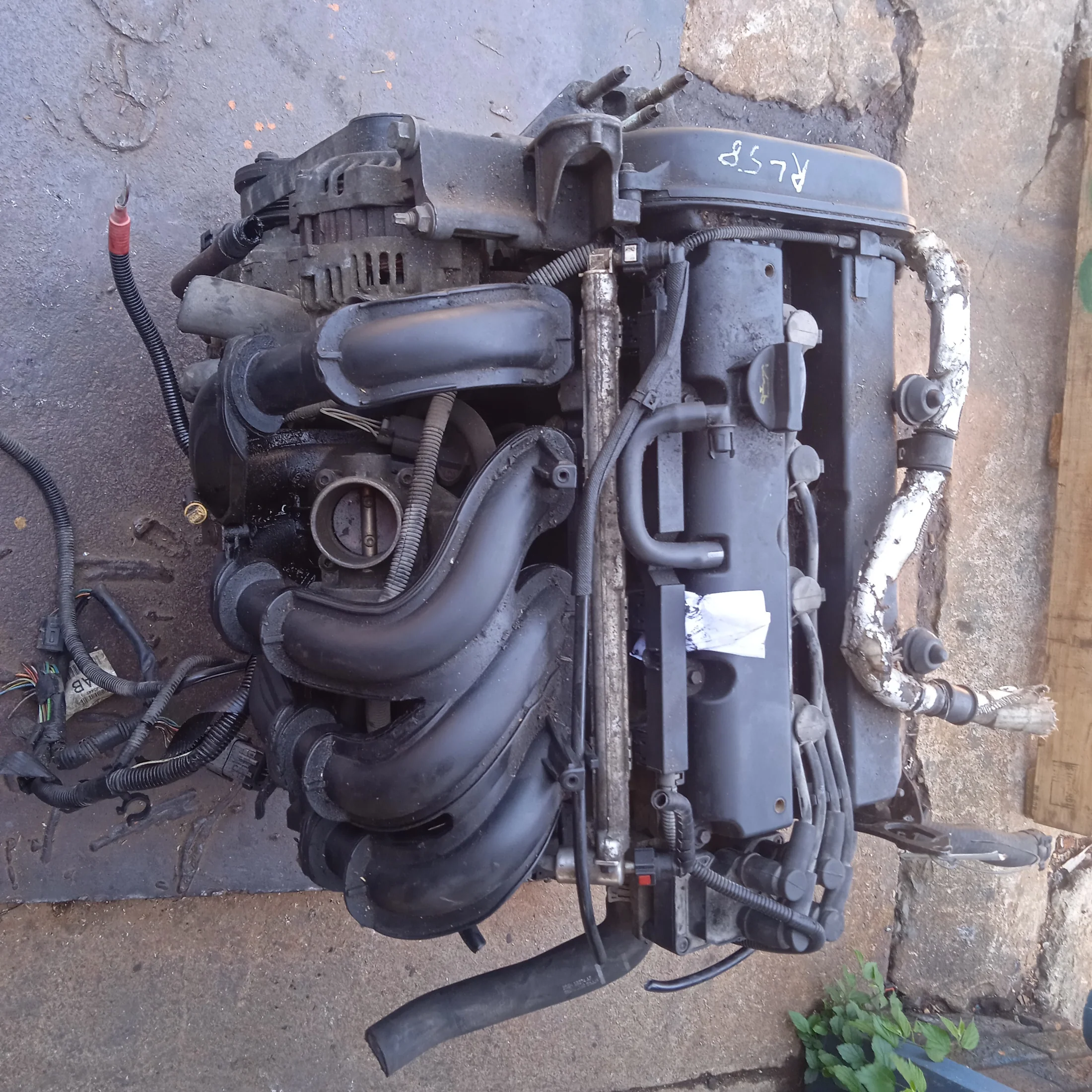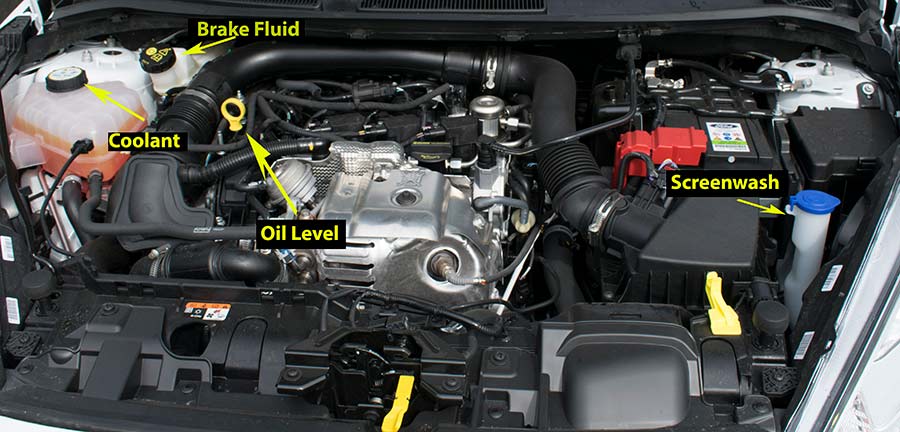Enhance Your Driving Experience with a Reliable Ford Fiesta Engine
Enhance Your Driving Experience with a Reliable Ford Fiesta Engine
Blog Article
The Future of Engines: Technologies Driving Sustainable Power Solutions
As the vehicle industry navigates the crucial shift in the direction of sustainability, the future of engines is increasingly specified by groundbreaking developments. Electric engine innovations, alongside appealing advancements in hydrogen gas cells and biofuels, are improving the landscape of power services.
Electric Engine Developments
The evolution of electrical engine growths represents an essential shift in the vehicle and aerospace industries, driven by the urgent demand for sustainable choices to nonrenewable fuel sources. This change is identified by substantial developments in battery modern technology, power electronics, and electrical motor design, which collectively improve the efficiency and efficiency of electric engines.
Recent advancements have actually led to the production of lighter, extra energy-dense batteries, such as lithium-silicon and solid-state batteries, which assure longer ranges and shorter billing times. Furthermore, renovations in electric motor performance, such as making use of long-term magnets and progressed cooling down systems, make it possible for electrical engines to run efficiently under varying conditions. These enhancements not only improve automobile performance but likewise contribute to a decrease in total energy consumption.
In addition, the integration of advanced software algorithms has enhanced energy administration in electric cars, enabling regenerative braking and predictive billing strategies. As makers progressively accept electrical propulsion, the automotive and aerospace sectors are seeing a standard change in the direction of greener modern technologies. This development not only satisfies regulative demands yet also lines up with customer choices for eco-friendly transport solutions, solidifying electric engines as a cornerstone of future sustainable mobility.
Developments in Biofuels
As the aerospace and automotive industries progressively focus on sustainable power sources, developments in biofuels arise as a corresponding solution to electric engines. Biofuels, derived from natural materials such as plants, waste, and algae, present an innovative avenue for reducing greenhouse gas discharges and reliance on fossil gas.
Recent research study has actually concentrated on improving the effectiveness and sustainability of biofuel production. Second-generation biofuels use non-food feedstocks, decreasing competition with food supply and decreasing ecological effect. Improvements in artificial biology have allowed the design of bacteria to produce biofuels extra efficiently, leading to greater yields and lower manufacturing prices.
Furthermore, the growth of drop-in biofuels permits for smooth assimilation right into existing infrastructure, enabling a smoother shift for markets typically depending on nonrenewable fuel sources. ford fiesta engine. These gas can be utilized in present engines without alterations, facilitating their adoption throughout numerous markets
Investments in biofuel innovation, in addition to supportive policies, are necessary to drive advancement and scalability. As the worldwide neighborhood seeks to deal with environment modification, biofuels provide a practical, instant option that aligns with the overarching goal of sustainability in transportation and air travel.
Hydrogen Gas Cell Technology
A growing number of scientists and business are discovering hydrogen gas cell innovation as a practical choice to traditional source of power in transport and power systems. This modern technology converts chemical power from hydrogen right into electricity via an electrochemical reaction, with water as the only by-product, making it an eco-friendly alternative.
The core of hydrogen gas cells is the gas cell pile, where hydrogen particles are split into protons and electrons. The flow of electrons creates power, while protons move through a membrane layer to incorporate with oxygen from the air, developing water. This procedure leads to high effectiveness and low emissions, positioning hydrogen gas cells as a crucial gamer in the shift to sustainable power.
Considerable improvements have been made in boosting the toughness and efficiency of fuel cells, along with lowering expenses through cutting-edge manufacturing strategies. The development of hydrogen production methods, such as electrolysis powered by eco-friendly energy resources, improves the sustainability of the general system. As framework for hydrogen refueling expands and production methods come to be extra effective, hydrogen gas cell modern technology holds great promise for decarbonizing different fields, consisting of sturdy transportation and fixed power generation.
Crossbreed Solutions and Their Effect
Crossbreed systems represent a substantial advancement in sustainable engine innovation, combining traditional internal combustion engines with electric propulsion to enhance power effectiveness and minimize discharges (ford fiesta engine). This dual strategy permits automobiles to utilize both power resources, allowing higher flexibility in energy intake and lowering dependence on nonrenewable fuel sources

Along with environmental advantages, hybrid systems use consumers a feasible change in the direction of completely electrical cars. They minimize variety stress and anxiety by integrating the benefit of gas with the advantages of electrical propulsion, making them an eye-catching choice for a bigger target her response market. As producers purchase hybrid innovation, the growth of more sophisticated battery systems and light-weight materials remains to improve performance. Overall, crossbreed systems represent a critical step in the direction of achieving lasting transport and dealing with the immediate need for eco friendly power solutions.
The Function of AI in Engine Style
Leveraging sophisticated algorithms and maker knowing methods, the auto sector is significantly integrating expert system (AI) into engine design processes. AI boosts the efficiency and effectiveness of layout by examining large datasets to determine optimum arrangements and efficiency parameters. This ability permits designers to replicate different operating problems and forecast engine habits under several circumstances, significantly lowering the time and cost connected with typical prototyping approaches.
In addition, AI assists in the development of advanced products and burning procedures tailored for sustainability. By enhancing fuel efficiency and decreasing emissions, AI-driven styles straighten with international efforts targeted at decreasing the carbon impact of automobile engines. Artificial intelligence algorithms can likewise predict upkeep needs, causing improved dependability and long life of engine elements.
Moreover, AI contributes in the assimilation of electrification technologies, such as crossbreed systems, where it can optimize battery monitoring and energy recuperation procedures. As the industry moves towards even more sustainable power remedies, the duty of AI in engine style becomes increasingly vital, driving advancement and enhancing the performance of future engines. Ultimately, see here now the cooperation in between AI and engine design proclaims a new era of smarter, cleaner, and hop over to here a lot more effective auto modern technologies.

Conclusion
In final thought, the future of engines is being shaped by a convergence of cutting-edge modern technologies that prioritize sustainability. Electric engine improvements, biofuel advancements, hydrogen gas cells, and hybrid systems jointly add to a substantial reduction in discharges and environmental influence.
Electric engine advancements, together with promising developments in hydrogen fuel cells and biofuels, are improving the landscape of power remedies. Additionally, renovations in electric motor efficiency, such as the use of long-term magnets and progressed cooling down systems, make it possible for electrical engines to run properly under varying conditions. By enhancing fuel efficiency and minimizing exhausts, AI-driven designs straighten with worldwide initiatives aimed at lowering the carbon footprint of automotive engines. As the sector relocates in the direction of even more lasting power remedies, the duty of AI in engine design becomes progressively essential, driving innovation and boosting the performance of future engines. Electric engine developments, biofuel advancements, hydrogen fuel cells, and crossbreed systems jointly contribute to a significant reduction in exhausts and ecological effect.
Report this page